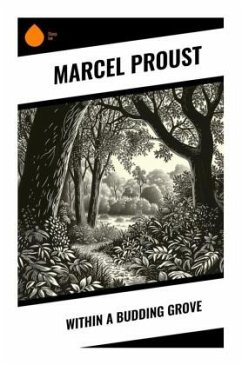
Swann's Way
Versandkostenfrei!
Versandfertig in 6-10 Tagen
10,99 €
inkl. MwSt.

PAYBACK Punkte
5 °P sammeln!
In 'Swann's Way,' the first volume of his monumental work 'In Search of Lost Time,' Marcel Proust delves into the complexities of memory, time, and subjective experience. The narrative weaves a rich tapestry of impressions influenced by the narrator's reminiscences, most notably focusing on Charles Swann's infatuation with Odette de Crécy. Proust's literary style, characterized by lengthy, intricate sentences and profound psychological insights, embodies the Impressionist ethos, capturing fleeting sensations and the nuances of human emotion against the backdrop of late 19th-century French soc...
In 'Swann's Way,' the first volume of his monumental work 'In Search of Lost Time,' Marcel Proust delves into the complexities of memory, time, and subjective experience. The narrative weaves a rich tapestry of impressions influenced by the narrator's reminiscences, most notably focusing on Charles Swann's infatuation with Odette de Crécy. Proust's literary style, characterized by lengthy, intricate sentences and profound psychological insights, embodies the Impressionist ethos, capturing fleeting sensations and the nuances of human emotion against the backdrop of late 19th-century French society. This exploration uncovers the intertwining paths of love, art, and the ephemeral nature of existence, foregrounding Proust's innovative approach to narrative and temporality. Marcel Proust, a French novelist and essayist, was deeply influenced by his own experiences of social life and artistic aspiration, which permeate his writing. Born into a wealthy, cultured family, Proust faced both personal challenges and societal changes that framed his literary perspective. His acute observations of the bourgeoisie and the intricacies of love and desire underpin 'Swann's Way,' revealing his intent to dissect the mechanisms of human experience and the seepage of time on personal identity. For readers seeking an exploration of the human condition through the lens of introspective reflection, 'Swann's Way' is an essential tome. Proust invites us to engage with his thought-provoking narrative that transcends mere storytelling, prompting a meditative journey into the essence of memory and the passage of time. This book is a cornerstone of modern literature and a profound meditation that resonates with anyone reflecting on their own experiences of love and loss.












